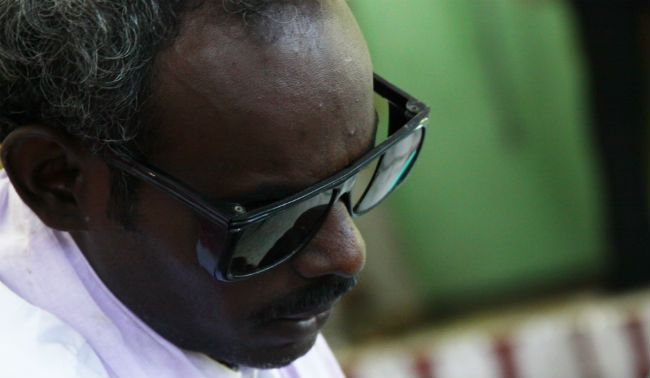Vision loss is something that many individuals don’t think about. I certainly didn’t - not until I began working as a case-manager at a social service agency for individuals with blindness and vision impairment. The experience was eye-opening (no pun intended) for me to better understand what it means to live with vision loss and blindness. I learned that most individuals who are legally blind have some, albeit limited, vision, and that vision loss is one of the leading forms of disability within the United States. I learned new things constantly at my job - but one thing that my work didn’t teach, but rather reinforced, was this: individuals with disabilities face a disproportionately high-degree of poverty.
Poverty is something that, as a middle-class American, I too often accept exists without thinking of the underlying issues. But as a social worker, and someone who aims to be socially aware, I try to understand how impoverishment is linked to other social conditions. Within my adopted city of New York, I see a lot of wealth - and a lot of poverty. And what is striking to me is the amount of disability I see when I look at individuals who are asking for money on the street.

Photo: Wiki commons | A blind man
When I worked as a case-manager at the agency for individuals with blindness and vision impairment, during the conversations I had with clients of the facility, I realized more and more that having a disability like blindness deeply impacted the ability of the person to find and keep a job. Subsequently, I saw the frustration and the struggle of individuals with blindness and vision impairment trying to make ends meet.
My understanding of disability is fairly confined to the micro-level as I was working “on-the-ground” and not in policy - so I was particularly intrigued to see a new report developed by the US Centers for Disease Control and Prevention (CDC) that looked at severe vision loss (SVL) and its correlation to poverty levels - particularly on a county-level around the United States.
According to the CDC report, “The U.S. government, in conjunction with the vision health communities, identified access to eye care services and the reduction of disparities in vision loss and as public health priority.” Largely due to the effects vision loss has on daily activities, individuals with blindness and vision impairment have an increased risk of “depression and social isolation, and increases the risk for falls and injuries.”
The CDC report looks at the roughly four million Americans 40 and older who are either blind or have severe vision loss across the United States, analyzing the difference between geographic locales. The South, more so than any other region in the United States, has a far heavier percentage of individuals living with vision problems.

Photo: Wiki commons | Film critic, Tommy Edison, who is blind, shows how he cooks his dinner
The report hypothesised that this concentration of vision problems in the South is linked to a higher levels of poverty in the region, as well as diabetes and other chronic diseases. And while the CDC’s report is not conclusive as to whether the level of poverty affects individuals’ access to eye health care or those with vision loss are living below the poverty level due to their disability - what is clear is that eye care and poverty are interlinked.
As knowledge is power, let me break down the most common cause of vision loss for adults: cataracts, diabetic retinopathy, glaucoma, and age-related macular degeneration can all lead to vision loss. And all of these conditions can develop gradually without warning signs - so it’s important to have regular access to health care services to make sure your eyes are in good shape (sadly, eating carrots is not enough).
While the CDC report is alarming, the findings did something that is good for health services - by looking at vision loss’ connection to poverty on a county-by-county level, the agency was able to give better recommendations on how communities can tackle vision loss (like through the promotion of healthy eating, maintaining a healthy weight, not smoking, and understanding family eye health history).
Awareness for health consequences, as well as how poverty can impact and exacerbate health conditions is important. It’s important because it makes us, global citizens, more aware of the world, and the nuanced ways that poverty negativily impacts people's lives. Better understanding these consequences enables better activism - and also increases a sense of empathy and understanding for human difference.